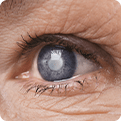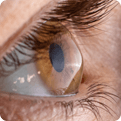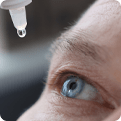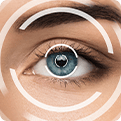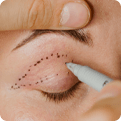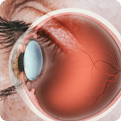
If your eyes often feel itchy or irritated, whether it’s seasonally or throughout the year, you might be experiencing eye allergy symptoms. Some people find relief with ocular allergy treatment, such as over-the-counter drops or antihistamines. However, symptoms don’t always respond as expected and you may need the help of a specialist. So how do you know when it’s time to see an ocular allergy doctor for support?
How to Identify When You Need an Ocular Allergy Specialist
Eye irritation can reduce your quality of life, making it hard to focus, work and sleep. Here are the signs you need to visit a specialist for ocular allergy symptoms.
When You’re Concerned About Ocular Allergy Symptoms
Common symptoms of ocular allergies include redness, itching, watery eyes, a stinging sensation, swelling and sensitivity to light. While these symptoms could indicate allergic conjunctivitis, they may also suggest dry eye or an infection. A specialist can properly diagnose the condition and ensure that you follow the right treatment plan without delay.
When Eye Allergy Symptoms Keep Returning
Recurring symptoms could be caused by allergies to dust mites, pet dander and other substances that are present throughout the year. Persistent eye irritation may also suggest an underlying issue like chronic allergic conjunctivitis that requires long-term management from a specialist.
When Symptoms Don’t Improve With Over-the-Counter Treatments
Over-the-counter eye drops and antihistamines can help reduce redness, itching and watering caused by mild ocular allergies. However, if these medications don’t offer significant improvement, it could be a sign of a more serious condition. A specialist will create a care plan to relieve symptoms and support eye health by protecting your eyes from corneal disorders and other complications.
When You Experience Severe Discomfort or Swelling
Severe eyelid swelling and discomfort may indicate a more serious condition than ocular allergies. If you are struggling to open your eyes fully or experience problems with your vision, a specialist can determine whether allergies are to blame, or if there is an infection or another complication.
When Only One Eye Is Affected
Ocular allergy symptoms typically affect both eyes. When only one eye is affected, this could suggest an infection, injury, or other condition unrelated to allergies. Due to the potential risks of using eye drops on an infected eye, you should consult a specialist for further investigation.
When Your Vision Is Affected
While allergic conjunctivitis has many uncomfortable symptoms, it shouldn’t cause impaired vision. Blurred vision, halos and other vision issues may instead be caused by a corneal infection or abrasion. An eye care specialist will assess the condition and provide a reliable corneal disease treatment if required.
Top-Rated Treatment for Ocular Allergies in Delaware
For expert diagnosis and treatment of eye allergies, contact the specialists at Eye Care of Delaware. We support patients experiencing ocular allergy symptoms, dry eye and other common conditions. Call (302) 454-8800 or request an appointment today.

